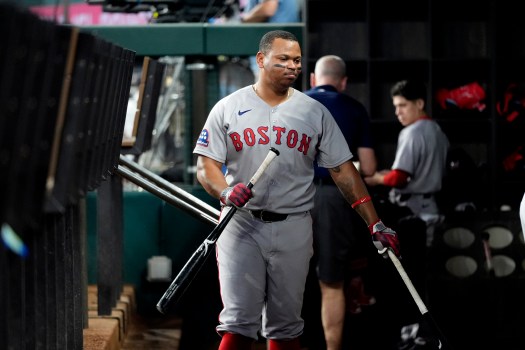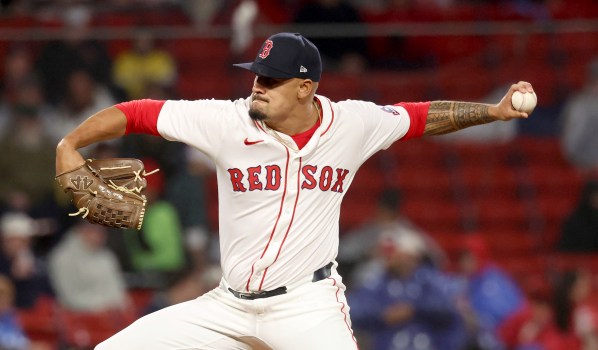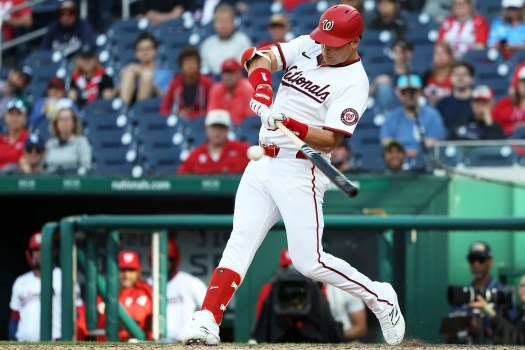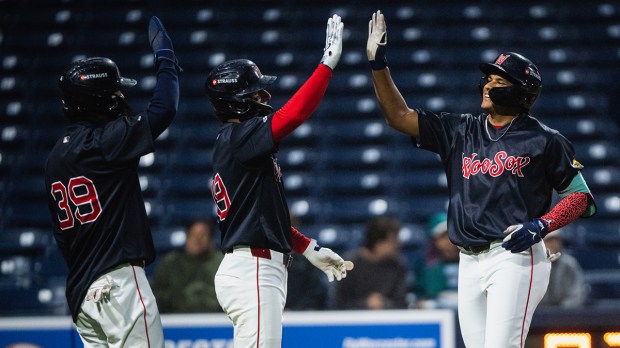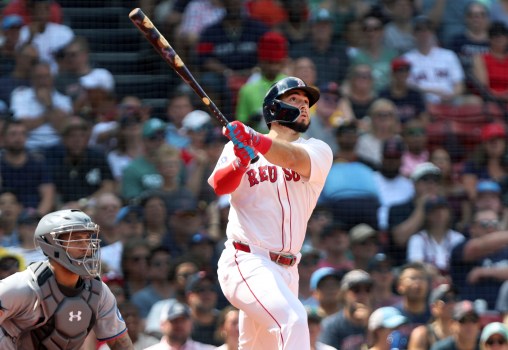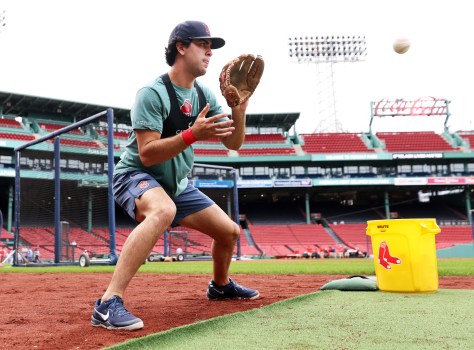The Red Sox traded Rafael Devers because they felt he wasn’t willing to do whatever it takes to win.
Though that wasn’t said explicitly, Red Sox CEO Sam Kennedy and chief baseball officer Craig Breslow made that abundantly clear over the course of their 40-minute press conference addressing the stunning trade. When asked why they felt it was necessary to abruptly deal one of the most productive hitters in team history, the pair repeatedly cited the team’s culture and the need to foster a winning environment.
Related Articles
-
Callahan: Red Sox cheap out again, kill 2025 hopes with Rafael Devers trade
-
What did Red Sox get back in Rafael Devers blockbuster?
-
Rafael Devers traded by Red Sox to San Francisco Giants
-
Brayan Bello throws seven scoreless as Red Sox complete sweep of Yankees
-
Red Sox right-hander to make rehab start in Worcester on Wednesday
Left unsaid was the fact they felt Devers had become detrimental to those efforts.
“As we think about the identity and the culture and the environment that’s created by great teams, there was something amiss here,” Breslow said, “and it was something that we needed to act decisively to course correct.”
The drama that has festered between the Red Sox and Devers has played out in plain view. Devers became frustrated after club officials didn’t communicate that they were considering moving him off third base until the eve of spring training, and after the Red Sox signed Alex Bregman he publicly resisted the notion of giving up his spot. Eventually he relented and shifted to designated hitter, but tensions flared again when Triston Casas suffered a season-ending knee injury, prompting Breslow to approach Devers and ask if he’d step in and play first base.
Again, Devers refused and publicly aired out the team, taking specific aim at Breslow while suggesting the chief baseball officer might have something against him. That prompted top club officials, including principal owner John Henry, to fly to Kansas City to clear the air, where the two sides had a “candid” and “honest” conversation.
Speaking Monday, Breslow made a point to reference how past Red Sox championship teams were comprised of players who were willing to make sacrifices for the betterment of the team. Or put another way, do what Devers had emphatically refused to do.
“What it keeps coming to is this idea that the whole is greater than the sum of the parts, that each individual is contributing and finding a way to help a team win,” Breslow said. “It’s the willingness to step up and sacrifice at times of need and essentially do whatever’s necessary to help the team win. And I think that’s the identity, this relentless pursuit of winning, that we’re looking for. It’s the identity that the World Series championship teams have had in the past.”
Devers presence as the club’s longest-tenured and highest paid player had become an obvious roadblock to those efforts, and Breslow even implied that they were concerned he could negatively impact the club’s up-and-coming young standouts.
“We would not have made this trade if we didn’t think it was best for the organization and the vision and the beliefs and culture that we’re trying to create,” Breslow said. “We have a number of young players who are in the big leagues and we’re really excited about them and we’re very, very deliberate and intentional about the environment that we want to create.”
Though Kennedy and Breslow declined to specify what they wanted from Devers that he was unwilling or unable to do, they left little room for doubt about why they felt the trade had to happen and why it couldn’t wait. Now the Red Sox and Devers will go their separate ways, and only time will tell if the bold move will turn out to be the right one.
